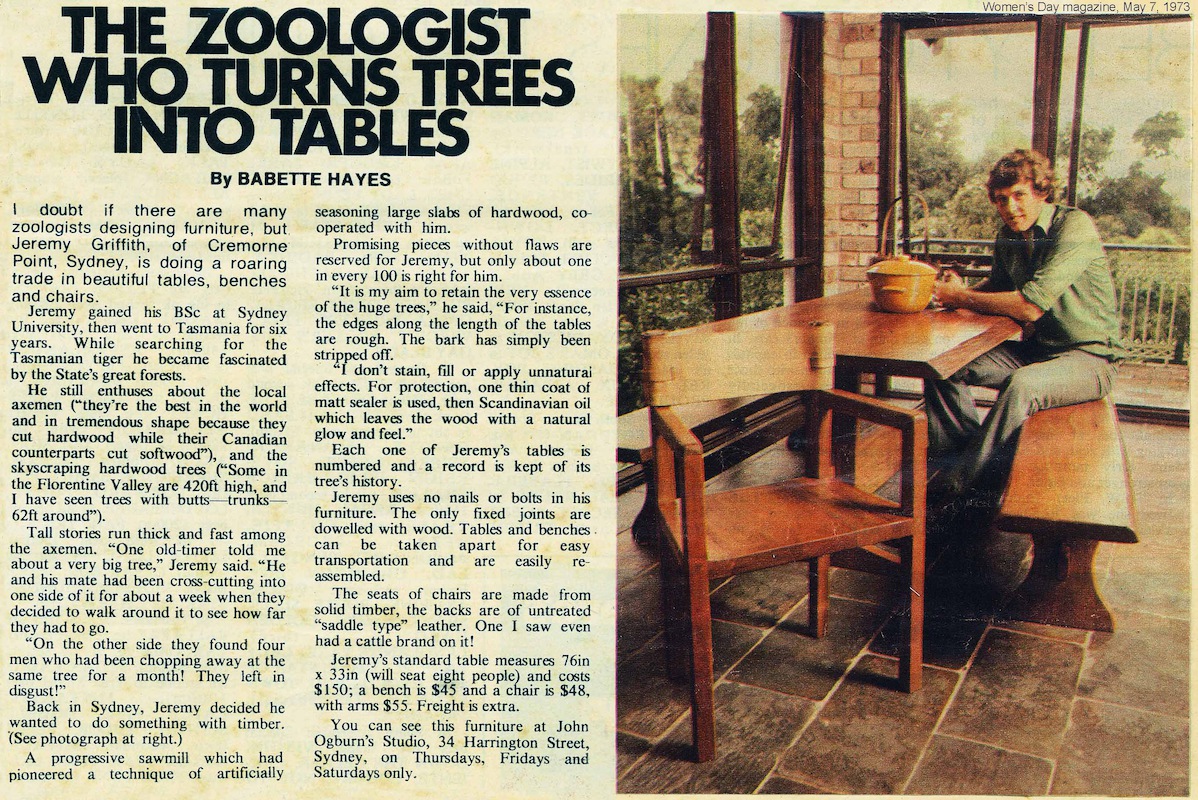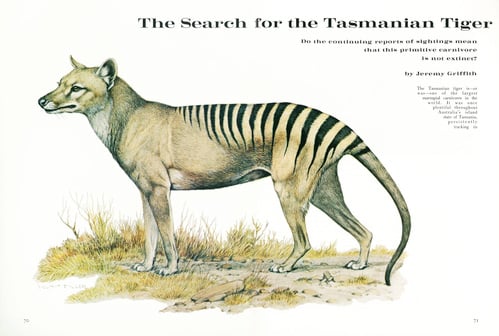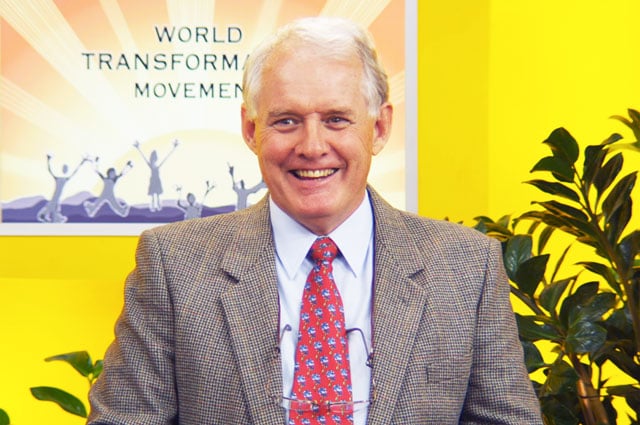Biographical Profile
“In the whole of written history there are only two or three people who
have been able to think on this scale about the human condition”
Prof. Anthony Barnett, zoologist, author and broadcaster, 1983
Video introducing Jeremy Griffith by Tim Macartney-Snape AM OAM
Born in 1945, and raised on a sheep station (ranch) in rural New South Wales, Australia, Jeremy Griffith was educated at Geelong Grammar School in Victoria. He matriculated with first class honors in biology and in 1965 began a science degree at the University of New England in northern New South Wales. While there, Jeremy played representative rugby union football, making the 1966 trials for the national team, the Wallabies.
Deferring his studies in 1967, Jeremy hitchhiked to Tasmania, determined to save the Thylacine—the Tasmanian Tiger—from extinction.
The search was to last more than six years—the most thorough investigation ever into the plight of the Tasmanian Tiger—but sadly concluded the ‘Tiger’ was indeed extinct. The quest generated articles in the American Museum of Natural History’s journal, Natural History, and Australian Geographic, and featured in an episode of the Australian television series A Big Country (see video below).
In 1971 Jeremy completed his BSc in zoology at the University of Sydney and the following year, in the same self-sufficient spirit with which he had undertaken the ‘Tiger’ search, he established Griffith Tablecraft, a highly successful business manufacturing furniture based on his own simple and natural designs. It was during this time that, at age 27, Jeremy realised that trying to save animals from extinction or trying to build ideal furniture wasn’t addressing the real issue behind the extraordinary imperfection in human life, which is our behaviour, and that what was really needed in the world was a deeper understanding of ourselves—so it was to this issue of our species’ less-than-ideal behaviour that Jeremy turned his attention, a study that has remained his life’s focus. Jeremy started writing about the human condition in 1975, established the non-profit organisation the World Transformation Movement in 1983 (dedicated to the study and amelioration of the human condition), and is the author of numerous books on the subject, including the 2004 bestseller A Species In Denial and FREEDOM: The End Of The Human Condition, his 2016 “summa masterpiece”. As well as being a biologist and author, Jeremy is a naturally talented and accomplished artist and designer.
For a more comprehensive description of Jeremy’s life and work see his full profile.


